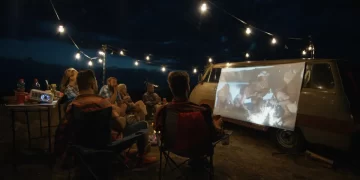People in Georgia rent cars for numerous reasons. Sometimes, you need a rental car for work, travel, during repairs, or because you want to save miles and wear and tear on your everyday vehicle. Rental cars are convenient, but unfortunately, they don’t reduce the risk of your being involved in an accident.
If you are in a car wreck in a rental car, there may be some questions about who is liable and how repairs will be made. You may have questions about what to do, who to call, and how to handle the situation. We’ve got you covered!
What to Do After a Car Wreck in a Rental Car
Most people are a little overwhelmed after a car accident. Here, a car accident lawyer provides some tips on what you should do after being involved in a car wreck in a rental car.
Call 911
Many people are hesitant to call 911 after a car wreck. Sometimes, they feel that the wreck isn’t serious enough to warrant a call. And other times, they are afraid of getting in trouble. You should always call 911 after a car wreck that causes any damage or injuries. In fact, in Georgia, you legally must call 911 if the wreck causes injury, death, or property damage of more than $500. If there are injuries, you should request medical assistance during your 911 call.
Gather Information
After any car wreck, it is a good idea to gather information about other parties involved or at the scene. Ask any parties involved for their contact and insurance information. If there are witnesses, ask them for contact information and if they would be willing to make a statement. Get the name, contact information, and badge number of the officer who fills out the accident report.
Document the Scene
If you are able to do so, document the accident scene. Take photos of the scene and any damage. Try to get wider photos that show the entire area, and also closer photos of the damage done to vehicles or structures. Make notes of anything relevant, such as the location, street names, and what you remember about the accident happening.
Contact the Rental Car Company
A car wreck in a rental car is going to require some extra paperwork compared to what you might experience if you were driving your vehicle. You will need to contact the rental car company as soon as possible to report the accident. You may find an emergency contact number on the rental agreement or in the vehicle.
Ask the rental car company about what you should do next. Each company has its own protocol for handling accidents. You will likely have to complete an incident report from the rental company in addition to the police accident report.
Contact Your Insurance Company
Most auto insurance resource policies cover you regardless of whose vehicle you are driving. If you are using your insurance to cover the accident, you should contact your insurance carrier as soon as possible to start a claim. Ask your insurance company about your coverage, deductible, and what you can expect to pay out-of-pocket, if anything.
Determine Who is Responsible
Part of determining your out-of-pocket costs is determining who is responsible for the accident. In case, you are responsible, then your auto insurance policy will cover the accident up to your policy limits. If someone else was responsible, then you should find out your options for coverage under the insurance policy. If you are not sure who is responsible, contact a car accident lawyer to discuss your situation.
Do I Need a Lawyer after a Car Wreck in a Rental Car?
If you are involved in an accident in a rental car, the claims process can be a bit more complicated. There are more parties involved in the situation and, therefore, more insurance companies. Working with a car accident lawyer is a great way to be sure that you know your rights and responsibilities. It can help you determine who is responsible and what insurance policy should cover any damage.
How can collision damage be reduced?
Reducing collision damage is crucial for promoting safety and minimizing the impact of accidents. Here are some effective ways to achieve this:
- Defensive Driving Education: Encourage and provide defensive driving courses for all drivers to enhance their awareness, anticipation, and response to potential hazards on the road.
- Advanced Driver Assistance Systems (ADAS): Invest in vehicles equipped with advanced safety technologies such as collision warning systems, automatic emergency braking, and lane departure warnings.
- Regular Vehicle Maintenance: Ensure that all vehicles undergo routine maintenance checks to address issues like brake malfunctions, tire wear, and other mechanical issues that could contribute to accidents.
- Driver Monitoring Systems: Implement systems that monitor driver behavior, such as fatigue detection and distraction alerts, to mitigate the risk of collisions caused by human factors.
- Promote Distraction-Free Driving: Enforce policies that discourage activities such as texting, talking on the phone, or any other distractions while driving to keep full attention on the road.
- Emergency Response Plans: Develop and communicate clear emergency response plans to drivers, ensuring they know how to react in the event of a collision to minimize damage and injuries.
A lawyer can also determine if a personal injury lawsuit is your best option to recover compensation for any injuries and property damage.




